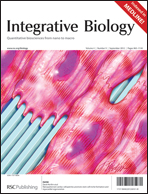*
Corresponding authors
a
Translational Research Laboratory, Breast Cancer Unit, Catalan Institute of Oncology (ICO), Bellvitge Institute for Biomedical Research (IDIBELL), Gran via 199, L'Hospitalet del Llobregat, Barcelona 08908, Catalonia, Spain
E-mail:
mapujana@iconcologia.net
b
ICO, IdIBGi, Girona 17007, Catalonia, Spain
c
European Bioinformatics Institute (EMBL-EBI), Wellcome Trust Genome Campus, Cambridge CB10 1SD, UK
d
Cancer Genome Project, Wellcome Trust Sanger Institute, Hinxton CB10 1SA, UK
e
Department of Applied Mathematics IV, Polytechnic University of Catalonia, Castelldefels, Barcelona 08860, Catalonia, Spain
f
Biomarkers and Susceptibility Unit, Biomedical Research Centre Network for Epidemiology and Public Health (CIBERESP), ICO, IDIBELL, L'Hospitalet del Llobregat, Barcelona 08908, Catalonia, Spain


 Please wait while we load your content...
Please wait while we load your content...